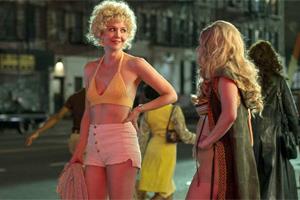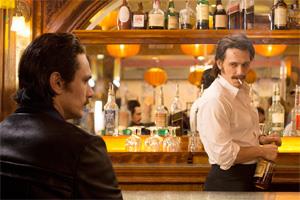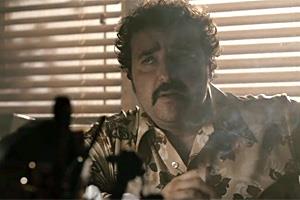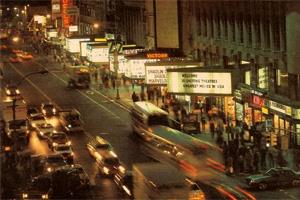HBO's 'The Deuce' Goes Down and Dirty into the '70s
Perhaps it’s a stretch to say that HBO’s long and winding road has now come full circle from The Hitchhiker to The Deuce.
But who doesn’t like to stretch? So let’s briefly roll with this.
The Hitchhiker, HBO’s first dramatic scripted series, premiered in 1983 as a vehicle for stylized, soft core sex scenes intended to both arouse and differentiate. Well-sculpted people caught in various acts of disrobing were strictly taboo on advertiser-supported competing networks.

HBO made all eight Season One episodes available for review. The fates of various principal characters won’t be given away here. But let’s note the symbolic climax, so to speak. Episode 8 ends with the June 12, 1972 New York premiere of Deep Throat, which changed everything in terms of hardcore porn going “mainstream.” But that’s really just the beginning, providing The Deuce with very fertile ground for a presumed Season Two.
The principal architect is David Simon, whose previous productions for HBO are The Corner, The Wire, Generation Kill, Treme and Show Me a Hero. This is a guy who doesn’t do glossy. And The Deuce (nickname for the 42nd St. neighborhood between Seventh and Eighth Avenues) is aggressively down and dirty in its depictions of prostitutes, pimps, johns, bars, cops, mobsters and “filmmakers.”

Vincent is a hard-pressed bartender/entrepreneur struggling to make ends meet while his marriage falls apart. Frankie (top) is a pure-and-simple, debt-ridden street hustler who both vexes and amuses his brother. They’re still tight, but the grip can always loosen.
Maggie Gyllenhaal, The Deuce’s other A-lister, plays free agent prostitute Eileen “Candy” Merrell, who operates independent of a pimp. She has a young son who lives with her very disapproving mother. But there could be a way out, even if it’s very much within the sex industry that Candy knows best. Gyllenhaal gives her all to this role, including frequent nudity in early episodes.
A wide array of supporting characters includes pimps Larry, C.C and Rodney (Gbenga Akinnagbe, Gary Carr, Method Man/Cliff Smith); pimp-controlled prostitutes Darlene, Lori and Ashley (Dominique Fishback, Emily Meade, Jamie Neumann); cops Chris Alston and Danny Flanagan (Lawrence Gilliard Jr., Don Harvey); mobsters Rudy Pipilo and Carmine Patriccia (Michael Rispoli, James Ciccone); openly gay bartender Bobby Dwyer (Chris Coy); and bouncer Big Mike (Mustafa Shakir).

The Deuce is richly atmospheric, whether it’s all those contrasting theater marquees (ranging from Patton to The Conformist to Mondo Trasho) to Vincent’s bustling Hi-Hat bar, site of a killer version of “96 Tears” in Episode 8. There’s also an all-hours diner suitable for gathering characters. And each hour’s blazing horns, during the closing credits, are a weekly must-hear.
The dialogue is sharp and suitably dicey, as when a pimp says in Episode 4, “I personally don’t mind a little ketchup on my hot dog.” No, he’s not talking about either food or condiments. And in the concluding episode, it’s something of a revelation to Candy and Harvey when a mobster tells them, “Lesbian sex. That’s a punch way above its weight class” in terms of audience appeal.

Simon has shown time and again that he knows how to make an audience cringe while also contemplating the impacts of his dramas’ oft-unforgiving surroundings. In that sense, The Deuce is the dirty lowdown, with much of the action below the belt. There’s nothing pretty here. But in the eyes of this beholder, you’ll otherwise know great drama when you see it.